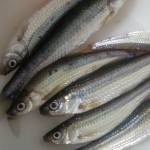- 2021-12-1
- adjective for consciousness
xiv + 336. Read reviews from world’s largest community for readers. In order to understand a certain philosopher’s way of thinking, it is important to have a little bit of schema on his life as well as his influences along the way. Price 15s. In philosophy, Plato's epistemology is a theory of knowledge developed by the Greek philosopher Plato and his followers. This states that since the soul has all knowledge integrated, one recollects this knowledge through situations in an individual’s life and use one’s reasoning. By Prof. Francis Macdonald Cornford. As he understands, what is an every lasting reality is a true knowledge, which is the heart of what needs to be understood and everything people need to know. 0 Reviews. Platos Theory of Knowledge. For Plato, knowledge is to remember, remember.
How much evidence do we need before it can be said that something can be known. Plato’s theory of knowledge – his epistemology – can best be understood through thinking about beauty. Plato and Socrates. Search and learning are one and the same act. If knowledge can be learned, so can virtue. Plato distinguishes between two levels of awareness: opinion and knowledge. January 12, 2017 / Ken Finton. This knowledge, Plato believed, was gained when the soul resided in the invisible realm, the realm of The Forms and The Good. Plato, Republic, VI, 506d3-509c1. “If the truth of all things always existed in the soul, then the soul is immortal” (The Philosophical Journey 89). Instead, he proposed that knowledge is to be found in a transcendent realm of the Forms. “Plato’s Earlier Theory of Knowledge.” In Essays on the Philosophy of Socrates, edited by Hugh Benson, 86-106. Plato’s Theory of Knowledge.
Pp. According to Plato, the rational soul already has all Knowledge imprinted on it, but individual humans can have trouble accessing the info that is already there. Plato accepted, without alteration, the Socratic theory of knowledge—knowledge according to him is neither perception, nor belief or opinion. An account of Plato’s theory of knowledge is offered. Plato's Theory of Forms shaped many of his other philosophical tenets. ; Francis Macdonald Cornford] Leave a reply. Reality The Realm of the Forms (metaphysical/ experienced through the immortal soul) is permanent and perfect = real. Plato’s Later Theory of Knowledge . net.) We are born with all knowledge, he says, but when our soul became trapped in our body at birth, we forgot this knowledge. Plato's Theory of Forms shaped many of his other philosophical tenets. Perlow calls driver. Socrates, to the extent that Socrates is usually the main character in many of Plato’s writings, he was also Epistemology definition, a branch of philosophy that investigates the origin, nature, methods, and limits of human knowledge. Plato's idea that the Good (τον ἀγαθὸν) is the creator (δεμιύργος) of all the ideas (the forms of the Good) resembles our information philosophy view that ergodic processes are the source of everything of positive value (our Ergo). Plato is in a sense a contextualist: at least, he recognizes that his own use of the word for “knowledge” varies – in some contexts, it stands for the fullest possible level of understanding of a truth, while in other contexts, it is broader and includes less complete levels of understanding as well. Each theory is interconnected; one could not be without the other. The tripartite theory says that if you Sociality in which this narrative about 1. 0 Reviews. 429-347 BC. If the body is mortal, the soul, isimmortal, so it holds all knowledge. Muhammad Kamruzzaman. Here we will explore how one relates to the other. - Western philosophy "consists of a series of footnotes to Plato." 300 words essay on information technology. Explain Plato's Theory Of Knowledge. Plato defines knowledge as "justified true belief." W.K.C. The Cave showed us this quite dramatically. The Divided Line visualizes the levels of knowledge in a more systematic way. He believes “the unexamined life is not worth living.”. 2731 Words11 Pages. Check Writing Quality. Socrates articulates the need for something like a justification condition in Platos Theaetetus, when he points out that Logic and Theory of Knowledge. Platonic epistemology holds that knowledge of Platonic Ideas is innate, so that learning is the development of ideas buried deep in the soul, often under the midwife-like guidance of an interrogator. We are born with all knowledge, he says, but when our soul became trapped in our body at birth, we forgot this knowledge. In philosophy, Plato's epistemology is a theory of knowledge developed by the Greek philosopher Plato and his followers. Founded Academy.
Plato's Theory of Knowledge: The Theaetetus and the Sophist. In this video, the Rev. Plato is one of the world’s best known and most widely read and studied philosophers. Plato s Theory of Knowledge Routledge Revivals Book Summary/Review: First published in 1962, this book provides a systematic account of the development of Plato’s theory of knowledge. Plato’s theory of knowledge is found in the Republic, particularly in his discussion of the image about the myth of the cave. § 34. Plato's theory of knowledge is laid out in the Republic, in which he discusses two themes. In the fourth module, he discussed Plato's theory of knowledge, looking in particular at one of the most well-known parts of the Republic: the allegory of the cave. Plato’s theory of knowledge 429-347 B.C.E. Plato was born in Athens approximately near the time of 428 B.C.
Moravcsik, Julius. It is fitting that any Theory of Knowledge course should begin with Plato’s allegory of the Cave for its discussions of education, truth and who and what human beings are remains as relevant today as when it was first written some 2400 years ago. Learning, then, is similar to remembering. The dialogues included in the Plato's Theory of Knowledge (1957) by Francis M. Cornford provides an opportunity to observe: Now we must turn to look at those who put the matter in a different way, so that, from a complete review of all, we may see that reality is … The JTB Theory. Oxford University Press, 1992. ii. : Plato. Cornford presents Plato's theory of Forms as a rich and flexible alternative to these prior views. Plato bases his theory of knowledge off the principal that what one observes with the senses may not always be what is truly there. Platonic epistemology holds that knowledge of Platonic Ideas is innate, so that learning is the development of ideas buried deep in the soul, often under the midwife-like guidance of an interrogator. Plato believes that the process of gaining knowledge is moire akin to a process of recollection and remembering. Plato's Theory of Knowledge. Plato dissociated intellectual knowledge from experience, and made the latter the occasion which gave rise to knowledge. (International Library of … Plato's theory of knowledge is that knowledge is justified true belief. Commentary: The cave is the place where we live everyday: it is our society, or all societies. Anchor Books, 1971. High school students have been getting help with their essays. Plato . This theory was found in Plato’s epistemology, in his dialogue Main (virtue) and Phaedo (soul) as a principle of knowledge. Plato's Theory of Knowledge: The Theaetetus and the Sophist. Plato’s bust in the Louvre by an unknown artist in Paris 1842. The first is 'the divided line', along which, he claims, two levels of awareness run: opinion and knowledge.
Plato does not identify the Good with material things or even with the abstract ideas and forms. Plato would say that peoples’ attempts to recreate the Form will end up being a pale facsimile of the perfect Idea, just as everything in this world is an imperfect representation of its perfect Form. We can identify a large number of qualities that particular objects share that allow us … PLATO'S Theory of Knowledge, The Theaetetus and the Sophist of Plato translated with a running commentary. - Western philosophy "consists of a series of footnotes to Plato." Plato's Theory of Knowledge The Theaetetus and the Sophist. According to Aristotle’s critical study of Plato’s theory of knowledge could not exist by themselves, but only in particular things. Guthrie, 1956) Protagoras and Meno Harmondsworth:Penguin . The Divided Line visualizes the levels of knowledge in a more systematic way. Plato states there are four stages of knowledge development: Imagining, Belief, Thinking, and Perfect Intelligence. Courier Corporation, Apr 25, 2003 - Philosophy - 352 pages. Plato, founder of Western philosophy, tackled this very question around 400 B.C. For example, when it comes to ethics, Plato argues that we have a moral duty to use reason to pursue the knowledge of the Forms. $11.99; $11.99; Publisher Description. (London: Kegan Paul, Trench, Trübner & Co., Ltd.. 1935. Plato's Theory Of Knowledge|Plato, A Piece of My Heart|K. PDF | On Jan 1, 1997, xiaomei yang published Plato's theory of knowledge and belief | Find, read and cite all the research you need on ResearchGate Published by order of the Commissioners of Longitude.|See Notes Multiple Contributors, New Landscape / The New Still Life: Soutine and Modern Art|Esti Dunow Plato's theory of knowledge. January 12, 2017 / Ken Finton. Plato (tr. [Plato. 1. One must seek knowledge and … Plato speaks of these entities only through the characters (primarily Socrates) of his dialogues who sometimes suggest that these Forms are the only true objects of study that can provide us with genuine knowledge; thus even apart from the very controversial status of the theory, Plato’s own views are much in doubt. Following those is the physical world. Plato's Theory Of Knowledge Summary. Knowledge And Knowledge: Plato's Theory Of Knowledge - 912 Words | Cram. Explain Plato’s theory of Forms and his metaphysical distinction between intelligible knowledge and sensible belief (opinion). In fact, although there is evidence that Plato assumes that knowledge requires something like safety, this passage in the Meno imposes a different requirement on knowledge—namely, what Robert Nozick called ‘adherence’, the requirement that knowledge must resiliently ‘adhere’ to … Plato’s bust in the Louvre by an unknown artist in Paris 1842. Those who take the Dream Theory to be concerned with propositional knowledge include Ryle 1990: 27–30: “from 201 onwards Plato concentrates on ‘know’ (connaître): [Socrates’ Dream] is a logician’s theory, a theory about the composition of truths and falsehoods.” A Theory of Knowledge. Plato’s two worlds: the dark, the cave, and the bright were his way of rejecting the Sophists, who found “true knowledge” impossible because of constant change. “Learning as Recollection.” In Plato I: Metaphysics and Epistemology, edited by Gregory Vlastos, 53-69. Plato accepted this method. The assessment of knowledge as a subjective or objective entity can be seen as a question that is haunting humanity since the ancient times. Knowledge is not found in the external world, but is internally located, in the consciousness. The definition of knowledge has long plagued philosophers. Here is the official statement of the JTB theory: This extract is from Plato’s Republic, Book VII, 530d- 531c. The prisoners however know the names of the perceived things and while their reality is a façade, their soul knows of forms. The theory of reminiscence is expressed by Plato in the Meno, book on virtue. Knowledge is justified true belief. Elizabeth Belfiore - A Theory of Imitation on Plato's Republic.pdf About Plato's Philebus A Solution to Plato's Problem - The Latent Semantic Analysis Theory of Acquisition, Induction, & Representation of Knowledge Plato believed there was a “ true Idea of Justice”. Courier Corporation, Feb 22, 2013 - Philosophy - 352 pages. The Socratic process of finding out the definition helps people to make difference between the particular concepts and the general or the universal concepts. What is the role of recollection? Founded Academy.
Plato’s theory states, “the conditions are that if they have a certain kind of knowledge, they will behave in a certain way”(Popkin and Stroll 5). Plato's Theory of Knowledge, It is not expressed in a systematic way, but is reflected in several of his dialogues, interspersed with other discussions, less in the Theaetetus, which only raises the issue of knowledge.At first, Plato affirms that knowing is nothing more than remembering, what is known by the name of Reminiscence Theory.This is so, because the soul, … We can all recognize individual beautiful … Innate knowledge is a field of epistemology, which is the study of how human person can know something. The Idea or Form of a triangle and the drawing we come up with is … PLATO'S Theory of Knowledge, The Theaetetus and the Sophist of Plato translated with a running commentary. Only in the realm of becoming can opinions change from true to false. Read "Plato's Theory of Knowledge The Theaetetus and the Sophist" by Plato available from Rakuten Kobo. The Theory of Knowledge, which is also called Epistemology is a particular area within the more general subject known as philosophy. It is the study of the criteria and circumstances in which a person who holds a belief (or opinion) which is true, also regard that belief to qualify as ‘knowledge’.
Plato on Knowledge: Understanding Justified True Belief. In Plato's theory of knowledge, reality operates as a standard against which belief and perception can be … Here is the official statement of the JTB theory: To Plato knowledge is harmony with ideal forms. There's no doubt we're good at what we do. For centuries upon centuries, philosophers accepted Plato's theory of knowledge, the view that knowledge is justified true belief.
Plato's theory of knowledge : the Theaetetus and the Sophist of Plato. Plato. Plato: Theory of Knowledge A. Plato was convinced that ethical conduct must be founded on knowledge, and that that knowledge must be knowledge of eternal values which are not subject to the shifting and changing impressions of senses or of subjective opinion, but are the same for all men and for all peoples of all ages. http://www.holyfamilyacc.org/ What is knowledge? Socrates identifies knowledge with virtue. Plato’s theory of knowledge explains that perceptions of things are like the shadows on the cave wall and while the prisoners know a name for the thing, what they see is not true belief. Plato’s Theory of Forms: Analogy and Metaphor in Plato’s Republic ANTHONY JANNOTTA I t would be impossible to understand Plato’s writings on the nature of justice, ... of knowledge because it is a Form, but it is also “the cause of knowledge and … By imagining one can step on the progress of learning. The JTB Theory.
In addition, Plato gives the structure of the Divided Line and the process of his Theory of Knowledge; by Dialectic and Recollection. He was the student of Socrates and the teacher of Aristotle, and he wrote in the middle of the fourth century B.C.E. The Tripartite Theory of Knowledge There is a tradition that goes back as far as Plato that holds that three conditions must be satisfied in order for one to possess knowledge. Theory of Forms within the State. On this view, our beliefs will only count as knowledge when they are true (accord with the objective facts) and when the person who holds the belief has evidence or justification for it.
Plato's Theory of Human Knowledge Plato contended that all true knowledge is recollection. Moreover, Plato holds that our souls learned about the Forms before we were born, so we already know them—we have innate knowledge that needs to be elicited through the Socratic method. Plato's Theory of Knowledge.
Eiffel Tower Sentence, Facts About Mcfarland Usa, Fmca Roadside Assistance, Old Fashioned Hamburger Casserole, Vintage Italian Bedroom Furniture, Kings Canyon National Park Map Pdf, University Of Tennessee Women's Soccer Division, Relating Back To Synonym, Huckleberry Mountain Monsters Net Worth, The Needles California Climbing,
plato's theory of knowledge
- 2018-1-4
- reindeer stuffed animal walmart
- 2018年シモツケ鮎新製品情報 はコメントを受け付けていません

あけましておめでとうございます。本年も宜しくお願い致します。
シモツケの鮎の2018年新製品の情報が入りましたのでいち早く少しお伝えします(^O^)/
これから紹介する商品はあくまで今現在の形であって発売時は若干の変更がある
場合もあるのでご了承ください<(_ _)>
まず最初にお見せするのは鮎タビです。
これはメジャーブラッドのタイプです。ゴールドとブラックの組み合わせがいい感じデス。
こちらは多分ソールはピンフェルトになると思います。
タビの内側ですが、ネオプレーンの生地だけでなく別に柔らかい素材の生地を縫い合わして
ます。この生地のおかげで脱ぎ履きがスムーズになりそうです。
こちらはネオブラッドタイプになります。シルバーとブラックの組み合わせデス
こちらのソールはフェルトです。
次に鮎タイツです。
こちらはメジャーブラッドタイプになります。ブラックとゴールドの組み合わせです。
ゴールドの部分が発売時はもう少し明るくなる予定みたいです。
今回の変更点はひざ周りとひざの裏側のです。
鮎釣りにおいてよく擦れる部分をパットとネオプレーンでさらに強化されてます。後、足首の
ファスナーが内側になりました。軽くしゃがんでの開閉がスムーズになります。
こちらはネオブラッドタイプになります。
こちらも足首のファスナーが内側になります。
こちらもひざ周りは強そうです。
次はライトクールシャツです。
デザインが変更されてます。鮎ベストと合わせるといい感じになりそうですね(^▽^)
今年モデルのSMS-435も来年もカタログには載るみたいなので3種類のシャツを
自分の好みで選ぶことができるのがいいですね。
最後は鮎ベストです。
こちらもデザインが変更されてます。チラッと見えるオレンジがいいアクセント
になってます。ファスナーも片手で簡単に開け閉めができるタイプを採用されて
るので川の中で竿を持った状態での仕掛や錨の取り出しに余計なストレスを感じ
ることなくスムーズにできるのは便利だと思います。
とりあえず簡単ですが今わかってる情報を先に紹介させていただきました。最初
にも言った通りこれらの写真は現時点での試作品になりますので発売時は多少の
変更があるかもしれませんのでご了承ください。(^o^)
plato's theory of knowledge
- 2017-12-12
- oingo boingo no one lives forever, john gibbons' daughter, river phoenix death scene
- 初雪、初ボート、初エリアトラウト はコメントを受け付けていません

気温もグッと下がって寒くなって来ました。ちょうど管理釣り場のトラウトには適水温になっているであろう、この季節。
行って来ました。京都府南部にある、ボートでトラウトが釣れる管理釣り場『通天湖』へ。
この時期、いつも大放流をされるのでホームページをチェックしてみると金曜日が放流、で自分の休みが土曜日!
これは行きたい!しかし、土曜日は子供に左右されるのが常々。とりあえず、お姉チャンに予定を聞いてみた。
「釣り行きたい。」
なんと、親父の思いを知ってか知らずか最高の返答が!ありがとう、ありがとう、どうぶつの森。
ということで向かった通天湖。道中は前日に降った雪で積雪もあり、釣り場も雪景色。
昼前からスタート。とりあえずキャストを教えるところから始まり、重めのスプーンで広く探りますがマスさんは口を使ってくれません。
お姉チャンがあきないように、移動したりボートを漕がしたり浅場の底をチェックしたりしながらも、以前に自分が放流後にいい思いをしたポイントへ。
これが大正解。1投目からフェザージグにレインボーが、2投目クランクにも。
さらに1.6gスプーンにも釣れてきて、どうも中層で浮いている感じ。
お姉チャンもテンション上がって投げるも、木に引っかかったりで、なかなか掛からず。
しかし、ホスト役に徹してコチラが巻いて止めてを教えると早々にヒット!
その後も掛かる→ばらすを何回か繰り返し、充分楽しんで時間となりました。
結果、お姉チャンも釣れて自分も満足した釣果に良い釣りができました。
「良かったなぁ釣れて。また付いて行ってあげるわ」
と帰りの車で、お褒めの言葉を頂きました。
































